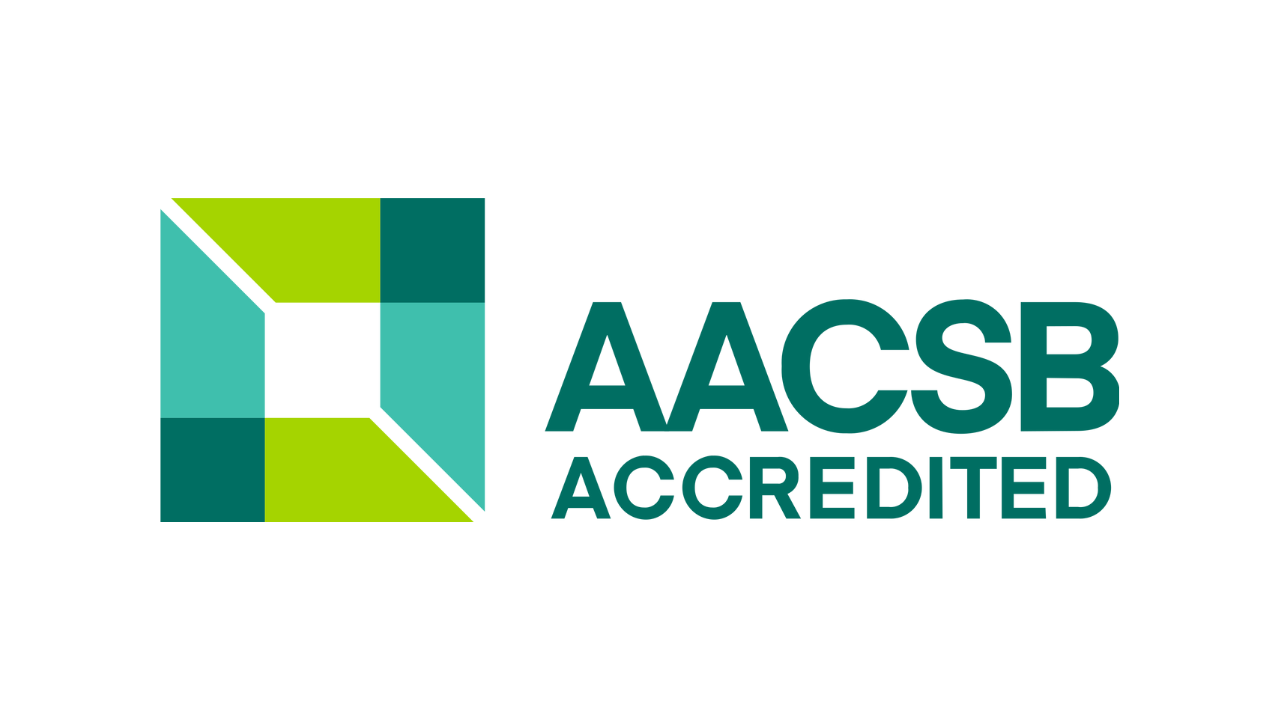

As an AACSB-accredited institution, Central Connecticut State University's School of Business is committed to assuring that our graduates enter the workforce with the appropriate knowledge, skills, and competencies. The Assurance of Learning processes that our school has in place make sure that the school is in compliance with both AACSB and NEASC standards.
The School of Business offers five undergraduate degrees, which share a unified core. The degrees are in Accounting, Finance, Management, Management Information Systems, and Marketing. Our faculty assess students' learning on four learning goals with a total of eight learning objectives (see Table 1).
Table 1. Undergraduate degree program learning goals and objectives
CS1: Students will prepare and deliver an effective business document.
CS2: Students will demonstrate comprehension of the business communication process.
TP1: Students provide meaningful contributions to team outcomes.
TP2: Students will describe, identify and explain characteristics of effective teams.
ES1: Students can recommend actions consistent with high ethical standards in response to an ethical dilemma.
ES2: Students will identify the impact of business actions and decisions on multiple stakeholders.
TS1: Students will identify appropriate issues for action when faced with a business situation.
TS2: Students will gather, interpret and integrate data from across disciplines to solve business problems.
Assessment takes place during each student's senior year. Students enroll in a zero-credit course (BUS 480), graded as pass-fail. Six of the eight objectives are assessed in this class. The remaining two learning objectives are assessed within MGT 480, a course required of all students in their senior year. BUS 480 is offered as a required co-requisite to MGT 480, to ensure that all students are assessed just before they graduate. This ensures that our process captures all students – including transfer students – at the appropriate stage of their academic careers.
In BUS 480, students are required to complete two hours of assessment activities, including both objective and subjective measures, in a classroom setting using Taskstream. All full-time faculty are able to evaluate students' work in Taskstream, using standard rubrics. Taskstream is an assessment and e-portfolio system.
Once students' artifacts are scored, the results are shared with faculty task forces (one for each learning goal). Those task forces analyze the data and present their findings to all faculty at the School's annual assessment retreat. Faculty then discuss how to improve student learning for each of the objectives. The faculty vote on possible solutions and take action to ensure continuous improvement in student learning.
The School of Business offers an MBA program with five specializations/tracks: accounting, finance, business analytics, supply chain analytics, and central track. The faculty assess student learning on four learning goals with a total of six learning objectives (see Table 2).
Table 2. MBA degree program learning goals and objectives
TS1: MBA students will gather, analyze, and synthesize relevant data and information in order to solve problems and arrive at appropriate decisions.
CS1: MBA students will prepare and deliver an effective business document.
CS2: MBA students will prepare and deliver an effective business presentation.
LS1: MBA students will evaluate how leadership traits and behaviors affect key stakeholders.
SK1: MBA students will utilize quantitative analysis methods to identify salient information and trends in data.
SK2: MBA students will analyze the impact of organizational decisions on stakeholders.
Assessment takes place during each student's final year. Students enroll in a zero-credit course (BUS 582), graded as pass-fail. All of the learning objectives are assessed in this class.
In BUS 582, students are required to upload written artifacts to Taskstream, deliver a presentation, and take part in other assessment activities.
Members of the school's Graduate Programs Committee work with the MBA Director and AoL Coordinator to evaluate students' work in Taskstream.
Once students' artifacts are scored, the results are shared with a faculty task force that analyzes the data and present its findings to all School of Business faculty at the School's annual assessment retreat. Faculty then discuss how to improve student learning for each of the objectives. The faculty vote on possible solutions and take action to ensure continuous improvement in student learning.
The School of Business offers a MS in Accounting program with five required courses and five electives. The overall learning goal for the program is information literacy, which initiates, sustains, and extends lifelong learning beyond formal classroom settings and provides practice with self-directed investigations as individuals move into internships, first professional positions, and increasing responsibilities in all arenas of life.
AK1: Students will create an accurate consolidated income statement.
AK2: Students will utilize a consolidated income statement to synthesize correct conclusion.
AK3: Students will demonstrate their accounting knowledge by answering questions derived from across the curriculum..
ER1: Students identify the problem and / or ethical issues in accounting.
ER2: Students identify stakeholders and ethical principles, including relevant professional ethical standards.
ER3: Students identify alternative courses of action for all stakeholders and choose the best alternative.
ER4: Students analyze pros and cons of alternative course of action
CS1: Students demonstrate effective written communication skills.
CS2: Students demonstrate effective oral communication skills.
AS1: Students demonstrate proficiency in the interpretation of data to make informed recommendations.
AS2: Students utilize technology to analyze accounting data.
CT1: Students identify the relevant business issue.
CT2: Students demonstrate the ability to research authoritative literature to evaluate the issue.
CT3: Students develop relevant conclusions.
Assessment is performed during a zero-credit course (AC 582) that MSA students take during their last semester. Assessments are evaluated by accounting department faculty, which analyzes the data. Pedagogical improvements are made based on assessment results.